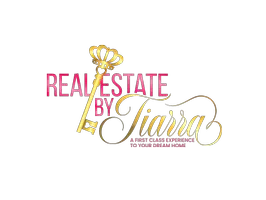Real Estate & Divorce Blog: Renting Out Your Former Marital Home: Pros and Cons Post-Divorce
The Pros of Renting Out Your Former Marital Home
1. Generate Rental Income
One of the most obvious benefits of renting out your former marital home is the potential for passive income. Rental payments can provide a steady cash flow, helping you cover the mortgage, property taxes, and maintenance costs. If the rent exceeds your expenses, you can even generate a profit each month, making it an attractive option for property owners who want to maintain an income stream.
What this means for you:
-
A positive cash flow could alleviate financial strain, especially if you’re adjusting to a single income post-divorce.
-
If the rental income exceeds your costs, it can provide extra funds that you could put toward other investments or personal expenses.
2. Maintain Ownership and Equity
Renting out your home allows you to retain ownership of the property while potentially benefiting from appreciation in property value over time. By keeping the property, you continue to build equity as the mortgage is paid down by your tenants. Additionally, you have the option to sell it later when market conditions are more favorable, possibly realizing a profit.
What this means for you:
-
You avoid the immediate financial loss that may come with selling the home in a less-than-ideal market.
-
Long-term ownership may be a good strategy if you anticipate the property’s value will rise, providing a return on investment down the road.
3. Time to Decide on Long-Term Plans
Renting out the property post-divorce gives you time to reflect and make long-term decisions without rushing into a sale. You may not be ready to make big financial choices immediately after your divorce, so renting can buy you the time you need to evaluate your next steps.
What this means for you:
-
Renting allows you to wait for the real estate market to improve or for your personal financial situation to stabilize.
-
You may choose to hold onto the property until you’re more certain about where you want to live or what your future financial goals are.
4. Flexibility in Future Property Use
Renting out your former marital home gives you the flexibility to change your mind later. If you decide that you’d like to move back into the home or use it for another purpose, you can stop renting and make the property available for your own personal use.
What this means for you:
-
Renting gives you options—whether you want to sell later, move back in, or keep it as a rental property indefinitely.
-
You have the freedom to adjust your plans based on future circumstances.
The Cons of Renting Out Your Former Marital Home
1. Emotional Ties to the Property
Renting out your former marital home can be emotionally challenging. The property may carry significant sentimental value, and living in or renting out the home might remind you of the past. The process of turning the home into a rental property can sometimes make it harder to move on.
What this means for you:
-
The emotional attachment to the property might cause stress, especially if the home holds memories from your marriage or the divorce itself.
-
Renting could prolong the emotional healing process, keeping you connected to a place that represents a past chapter of your life.
2. Responsibility for Maintenance and Repairs
As a landlord, you will be responsible for maintaining the property and handling repairs. This can be time-consuming and costly. If you have tenants who report issues, you'll need to act promptly to keep them happy and avoid any complaints or legal issues.
What this means for you:
-
Being a landlord involves more than just collecting rent—it also means managing repairs, ensuring the property is up to code, and maintaining the home in a habitable condition.
-
Depending on the property's age and condition, ongoing maintenance can be a significant expense and require your attention or the assistance of a property management company.
3. Property Management Challenges
If you’re not interested in dealing with tenants directly, hiring a property management company is an option. However, property management comes at a cost—typically 8-12% of the monthly rent. Plus, managing tenants can still be a hassle, from screening applicants to dealing with potential issues like late payments or disputes.
What this means for you:
-
Managing tenants and rental agreements can be a lot of work if you're not prepared for the responsibilities.
-
If you hire a property manager, you’ll lose a portion of the rental income, reducing the profitability of your investment.
4. Risk of Rental Income Inconsistency
Rental income is not always guaranteed. If you have tenants who fail to pay rent on time or cause damage to the property, it can lead to financial instability. You may also experience periods where the property is vacant, which can affect your income and leave you responsible for covering costs like the mortgage and utilities.
What this means for you:
-
Rental income can be inconsistent, especially if you face tenant turnover or if the market for rentals is slow.
-
Vacancies or problem tenants can disrupt your financial planning, potentially leading to additional stress during an already challenging time.
5. Legal and Tax Considerations
Being a landlord comes with legal responsibilities and tax implications. You’ll need to be familiar with landlord-tenant laws, tax deductions related to rental properties, and how your rental income will affect your overall tax situation. Consulting with an attorney or accountant is often necessary to ensure compliance.
What this means for you:
-
Understanding landlord-tenant laws is crucial to avoid legal disputes with tenants.
-
You’ll also need to navigate the tax implications of rental income, including deductions for property management, maintenance, and mortgage interest.
Conclusion: Is Renting Out Your Home Right for You?
Renting out your former marital home post-divorce can offer several advantages, including generating rental income, maintaining ownership, and providing time to make long-term decisions. However, the process comes with challenges like emotional ties to the property, ongoing maintenance, and managing tenants.
Ultimately, the decision to rent out your former marital home depends on your financial goals, emotional readiness, and willingness to take on the responsibilities of being a landlord. If you feel uncertain, it may be helpful to consult with a real estate agent, financial advisor, or property manager to weigh your options and make an informed decision.
If you’re ready to take the next step or need assistance in managing your rental property, we’re here to help! Feel free to reach out for personalized advice tailored to your situation.
Categories
Recent Posts










GET MORE INFORMATION

